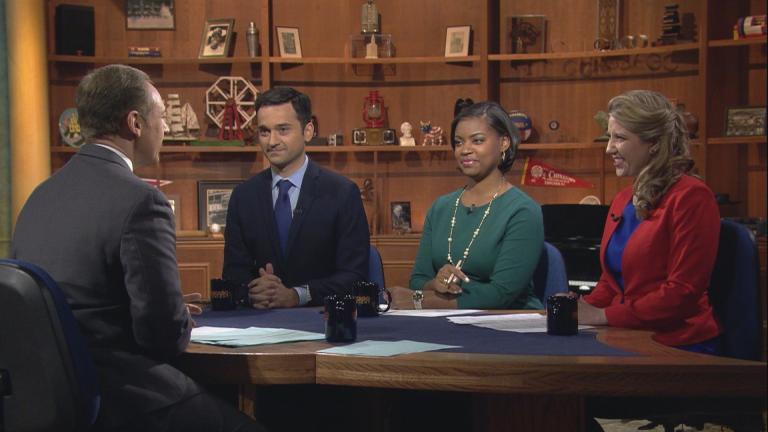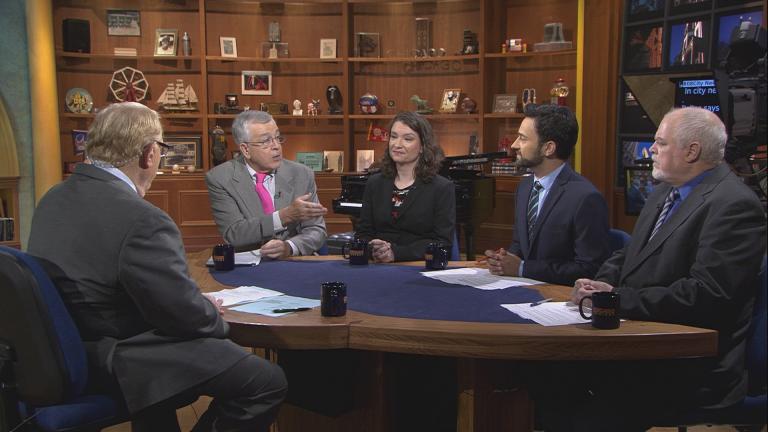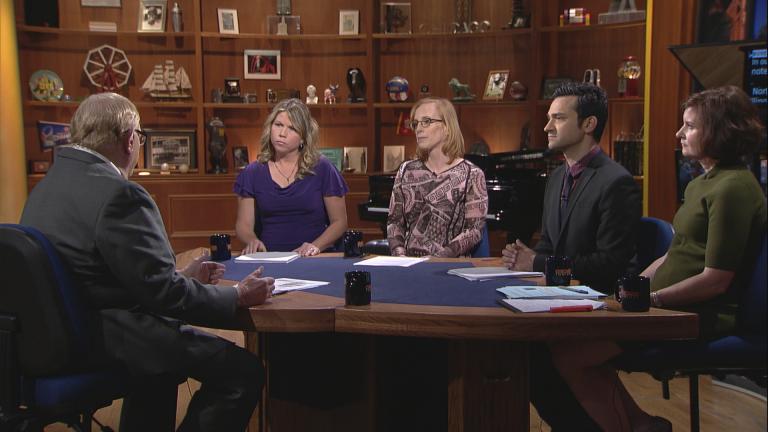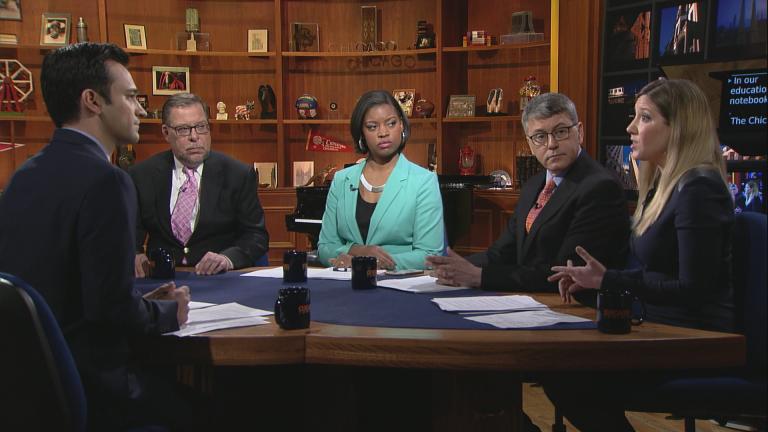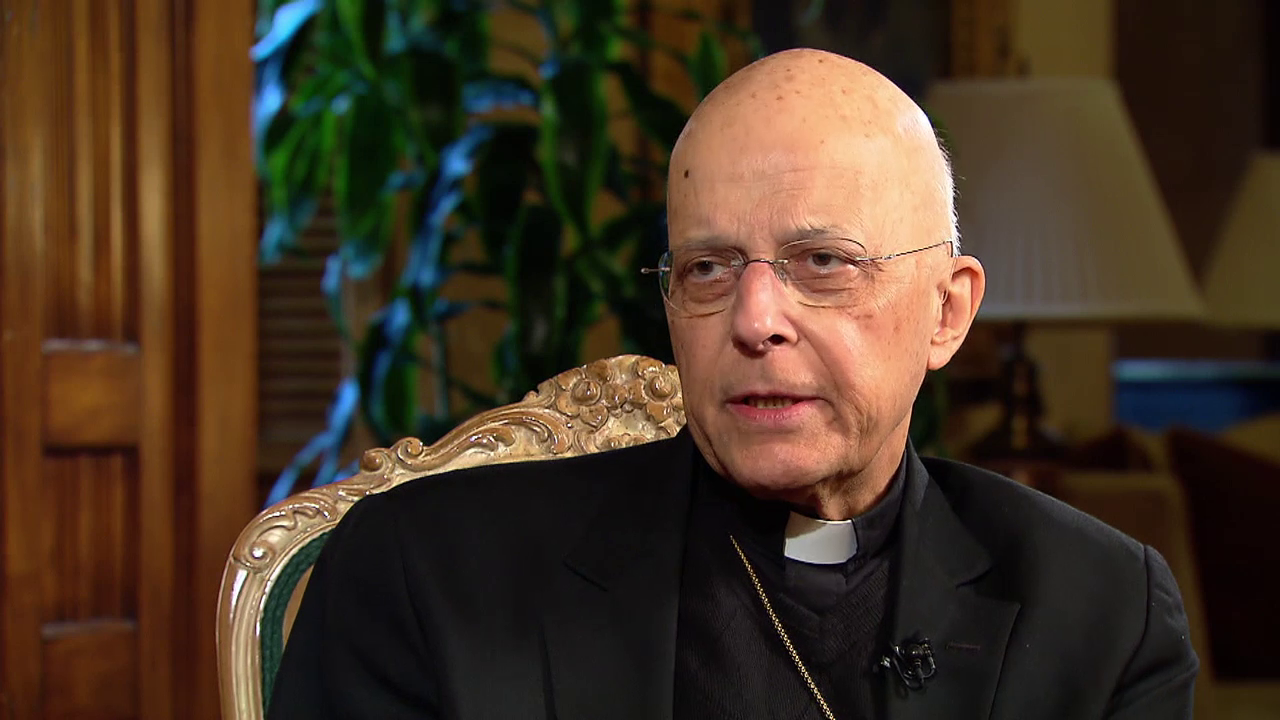
One of the most memorable quotes in Seattle Archbishop J. Peter Sartain’s homily at the funeral of his good friend and mentor, Cardinal Francis George, came from George himself.
“The only thing we take with us when we die is what we have given away,” Sartain said, quoting the Cardinal who had spoken to him about the nature of death.
Given this core belief, it is no surprise that George spent much of his final weeks, and even his final hours, fine-tuning the manuscript for a forthcoming book of personal essays called A Godly Humanism.
George finished his final manuscript just nine days before his death from cancer, according to Trevor Lipscombe, editor of A Godly Humanism and director of The Catholic University of America Press.
George’s final correspondence about the book came four minutes after midnight on the day he died.
“This is the book he wanted to be known for,” Lipscombe said.
Essays of Reflection
In A Godly Humanism, George strives to connect faith with reason, following the guide of one of the church’s most famous philosophers, St. Augustine of Hippo. The book is written for believers who seek both “spiritual advice and intellectual guidance.”
In the book’s preface, George said he wrote the essays as “aids to personal reflection, especially on the part of anyone who is striving to integrate wisdom and discipleship.”
“These are reflections on the journeys he’s made,” Lipscombe said. “He’s not got axes to grind here. He’s looking back very much at the church he loves.”
The publisher says the book does not offer pointed criticism about the direction of the church or the broader culture’s move away from religious orthodoxy, subjects George was unapologetic about in interviews. A Godly Humanism also does not address the church’s sexual abuse crisis.
George authored the book’s preface on February 22. In it he said, the essays are “neither directly autobiographical nor straightforwardly historical, neither professionally theological nor distinctively spiritual in presentation, neither apologetic nor a commentary on ecclesial life since the Second Vatican Council.”
The book is 214 pages, with chapters titled: “Saints in Catholic Intellectual Life,” “How God Thinks,” “A Christian Intellectual in a Post-Christian Society,” “A Christian Intellectual and the Moral Life,” “Education That Integrates Culture and Religion,” “ Integrating the Second Vatican Council,” and “Recent Popes and the Renewal of Catholic Intellectual Life.”
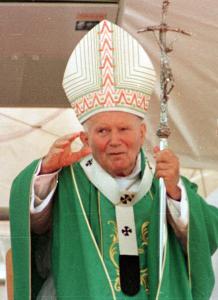 George’s Thoughts on Popes
George’s Thoughts on Popes
In the chapter on popes, George also writes about the teachings and lessons from each pope since the second Vatican Council, or the 1962-1965 meetings between Pope John XXIII and church leaders that determined the direction of church. He writes of his particular fondness for Pope John Paul II, who was recently made a saint, for his “integration of faith and culture in preaching the Gospel to peoples who did not yet know who Christ was.”
“Pope John Paul [II]’s teaching has contributed much to shaping my intellectual and spiritual life,” George said in his book.
As for Pope Francis, “the magisterium has taken on a unique presentation,” George said. “He teaches through gestures, which are telling and of universal significance. They are, however, more easily open to different interpretations than are words; they evoke rather than define.”
Genesis of the Book
The book is expected to be published June 30, according to its publisher. A Godly Humanism was born through discussions between George and John Garvey, a friend and president of The Catholic University of America. It follows other books George has written, including The Difference God Makes: A Catholic Vision of Faith, Communion, and Culture, and God In Action: How Faith Can Address the Challenges of the World.
George died on Friday, April 17 and was eulogized at Holy Name Cathedral on Thursday, April 23. He had specifically requested that Sartain give the homily, in which Sartain recounted George’s words on death and his pursuit of an intellectual life in the Catholic Church.
“We give (God) our time, which is all that we have, and he takes the gift and calls us when he is ready to do so,” George concluded in the book’s preface. “In the end, that is all that there is, and everything is summed up and integrated in that vision and desire.”

